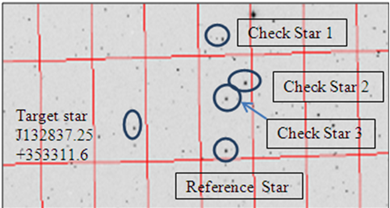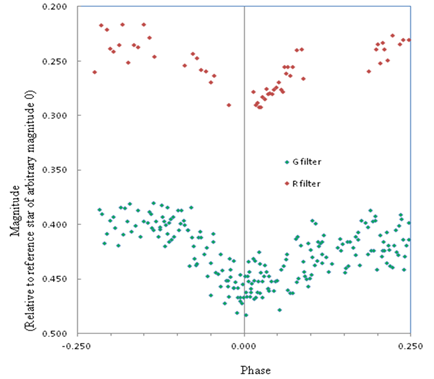Why collaborate?

Blog post by Dr Sam Woods-Peel
In 2013 I studied S382, Astrophysics. I had been looking forward to this from the start of my OU open science degree. The EMA on this module consisted of a project involving a remotely controlled telescope based in Mallorca to take observations of stars. What could be more exciting I thought? Not doing it through group work and collaboration with others!!
Like many students, the thought of group work on my degree filled me with dread. I mean, I don’t want other people’s work contributing to my marks, as I am sure I will do better on my own, and I certainly don’t want other people to benefit from my work. I shouldn’t have worried. It was a very worthwhile experience that taught me a lot about how to collaborate with others.
Our group, called Alpheratz after a star, consisted of nine students at the beginning. It soon became clear that two students were not engaging. We told our tutor; another student joined our group and we proceeded as a group of eight. What happened to the missing two I do not know, but there was enough for us to do without worrying about them. Our group came from all over the country, from Scotland, to Wales to Ashford, Kent and everywhere in between. We started by having a good chat on Skype about who we all were, our paths to the module, what we felt we were good at and how our personal lives might affect the group. The project ran over 10 weeks, and people had holidays booked, kids on half term, health concerns etc that needed consideration as we arranged how our group would work. Most important was that most of us had jobs. This was important because the observation sessions involving the telescope in Mallorca could only happen at night and meant staying up until 5am! Our observation schedule involved seven nights over six weeks, so we really did have to work as a team to cover them all. Each observation session needed four people to run it, including one person in charge of closing the telescope doors if it started to rain in Mallorca!

Finder chart for our target star © Alpheratz, 2013
As we had to do a personal log of the group work and submit that for marks, I kept a good diary of what was happening. Some people were more active than others in the group, but everyone turned up to the observation nights when they were down to. We had regular Skype meetings and had obtained everyone’s email and phone number at the start. If we had a problem, there was always some one to turn to. It quickly became clear that there was far too much work for us to have done alone. We had to work together if we wanted a good grade, so the literature review was shared out, we all took a turn at observing, and we shared the project coordination. Each week a different person was in charge of making sure that week’s work was done and running any meetings/observations.
When working in a group you will have different people with different skills, and in order to maximise the mark the whole group will get you need to work with people’s strengths. If someone is used to working nights, let them do more of the observations. If someone really likes critiquing articles, let them do more of the literature review. If someone likes organising everyone else, let them do more coordination. If someone is really good at taking notes, let them take the notes for everyone. In my case, I am good at proof-reading, so I volunteered to be the final project coordinator responsible for proof reading and submission. We all played our part, played to our strengths and produced a report that was better than any of us could have done alone.
Why was our group work enjoyable and a success? We had good communication and regular meetings. We understood what was going on in each other’s lives. We allowed people to work to their strengths and not worry about an absolutely strict division of work. We did our utmost to make our individual contributions the best they could be, and then worked together as a group to ensure the group report was the best it could be. But the best bit of group work was that for those 10 weeks I was part of a group. I had people I could phone if there was an issue with the software, or something I didn’t understand. I met regularly with other people who understood what I was doing, and it really didn’t matter it was all online. For those 10 weeks I was not a lonely distance-learning student.
My advice with group work is to go into it relishing the opportunity to work with and learn from others. Don’t be afraid. It may turn out to be the highlight of your degree.

Final light curve based on observation of our target star © Alpheratz, 2013

Dr Sam Woods
Sam is a qualified solicitor and has a PhD in Maritime Law. She started tutoring for the OU in 2006 and became a Student Experience Manager in 2021. Aside from her legal and teaching career she has done lots of other jobs that have added to her skill set. These include Archaeologist, Usherette in a theatre, reading the local papers of the South West as a Press Reader, and six scary weeks working in a pasty shop. She also volunteered for the National Trust running residential working holidays for 25 years. Sam is a keen musician and plays oboe and trumpet in local orchestras. She was also a part-time student at the OU and has just finished her Open science degree. She has a keen interest in maritime archaeology, made her own long bow and has joined a local archery society!